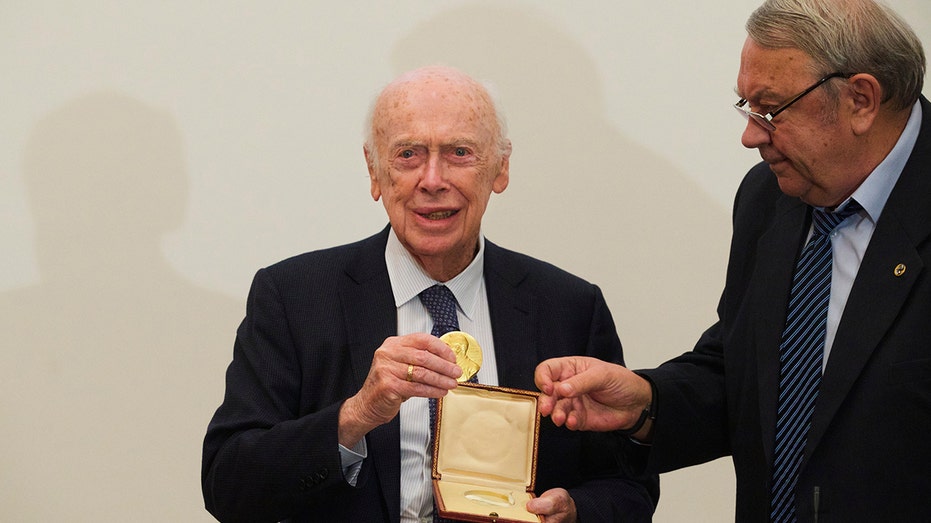James Watson, who co-discovered the double-helix structure of DNA in 1953, has died at age 97.
Born in Chicago in 1928, Watson made the groundbreaking discovery at just 24 years old alongside British physicist Francis Crick. Watson died in hospice care after a brief illness, his son confirmed Friday, according to The Associated Press.
“As a scientist, his and Francis Crick’s determination of the structure of DNA, based on data from Rosalind Franklin, Maurice Wilkins and their colleagues at King’s College London, was a pivotal moment in the life sciences,” Cold Spring Harbor Laboratory, Watson’s former research institution, said in a statement Friday.
BODY OF ANTARCTIC EXPLORER FOUND AFTER 66 YEARS AFTER HIS DISAPPEARANCE
Watson died earlier this week on Long Island, The New York Times reported.
Watson, along with scientists Francis Crick and Maurice Wilkins, won the 1962 Nobel Prize after discovering DNA’s double-helix structure, two intertwined strands resembling a twisting ladder, The Associated Press reported.
SKIN DNA BREAKTHROUGH COULD LET 60-YEAR-OLD WOMEN HAVE GENETICALLY RELATED KIDS
“Francis Crick and I made the discovery of the century, that was pretty clear,” Watson once said.
The discovery revealed how genetic information is stored and replicated and created the foundation for modern genetic engineering, disease treatment with genes and DNA identification techniques, according to The Associated Press.
In the years that followed the discovery, Watson authored books, including “The Double Helix” in 1968 and “Molecular Biology of the Gene” in 1965.
DNA TEST REVEALS WHICH CHILDREN ARE AT HIGHER RISK OF OBESITY IN ADULTHOOD
However, later in life, he also drew widespread condemnation for racist remarks.
“His remarks on race and IQ in 2008 led the CSHL Board of Trustees to remove him from all administrative roles and his appointment as a CSHL Trustee,” Cold Spring Harbor Laboratory wrote. “When he made similar statements in 2020, the board revoked his Emeritus status and severed all connections with him.”
Crick and Wilkins both died in 2004, according to The Associated Press.
























